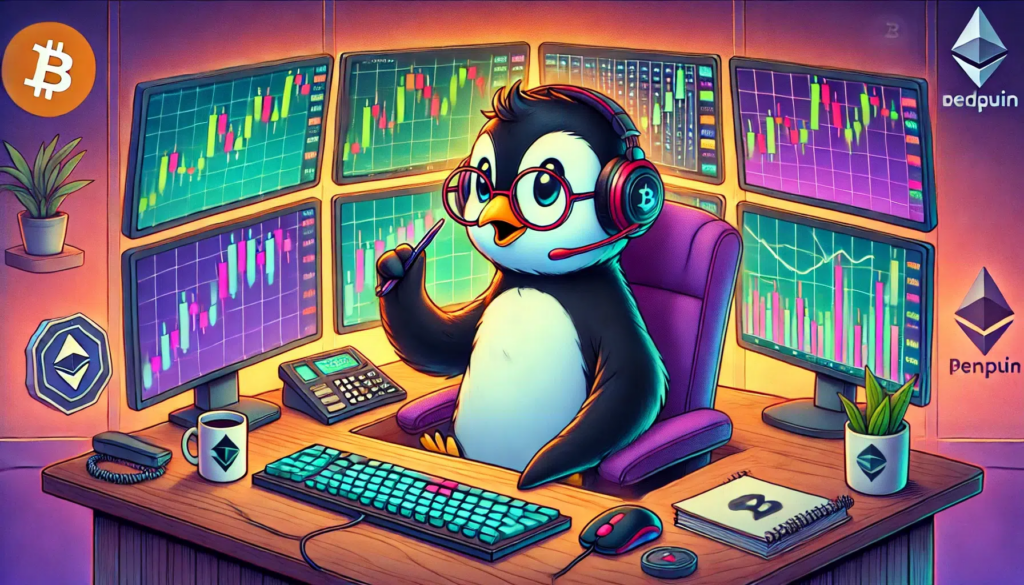Key Information on the Pudgy Penguins Token PENGU
In December 2024, the well-known NFT project Pudgy Penguins announced the launch of its native token PENGU, with an initial price of $0.05 per token, reaching as high as $0.07 on the first day of trading. According to the rules, each Pudgy Penguins NFT holder received an airdrop of 1.7 million PENGU tokens. At peak price, the airdrop for a single NFT was worth over $116,000, accounting for 86.3% of total holder earnings. This airdrop mechanism quickly drew market attention—Pudgy Penguins’ floor price rose 133.6% during the airdrop period, and the derivative series Lil Pudgys surged by 165.7%.

Recently, South Korea’s largest exchange, Upbit, announced listings for PENGU trading pairs (KRW, BTC, USDT), further boosting the token price by 23.8% within 24 hours. As of writing, PENGU is priced at $0.0157, with a circulating market cap of approximately $870 million.
PENGU Tokenomics and Strategic Intentions
Previously mired in a financial scandal involving its founding team, Pudgy Penguins was acquired in 2022 by entrepreneur Luca Netz and gradually transformed into a “Web3 Disney.” The launch of the PENGU token marks a key step in its ecosystem expansion:
-
Bridging Physical and Virtual Economies: Holders can scan QR codes on physical Pudgy Toys to enter the virtual Pudgy World, where they can use PENGU to purchase digital goods or participate in community governance.
-
Multi-Chain Deployment Strategy: Initially launched on the Solana network to reduce transaction fees, with plans to expand to Ethereum and its own Layer 2 network Abstract, aiming to reach 5 million wallet addresses.
-
Airdrop Targeting Multiple Groups: Beyond NFT holders, the airdrop includes active Solana users and buyers of physical toys, attempting to build a cross-scenario loyalty system.
This model aims to resolve the liquidity issue in NFTs—enabling holders to realize value instantly via tokens while strengthening the relationship between brand and user.
Market Response and Points of Contention
The wealth effect of PENGU quickly ignited market enthusiasm. The rare Pudgy Rods sub-series received airdrops worth over $300,000, sparking a buying frenzy in secondary markets. Physical toys were also hoarded by speculators, some of whom stole and resold the metaverse QR codes inside the packaging, prompting retailers to pull products from shelves.
Exchange listings intensified price volatility. After listing on Upbit, Korean users contributed 37% of PENGU’s trading volume, with nearly $500 million traded in a single day. However, on-chain data revealed that some whale addresses profited over $8 million by buying low and selling high, while project-linked wallets offloaded tokens worth $8.74 million, triggering community concerns over price manipulation.
For retail investors, the JuCoin market page provides real-time pricing and volume data to help assess market trends.
Potential Risks and Long-Term Challenges
While PENGU has boosted NFT value in the short term, the ecosystem still faces multiple challenges:
- Lack of Utility: Currently, PENGU serves mainly as a “community pass” with few clear spending scenarios, making its price heavily dependent on market sentiment.
- Inflation Pressure: With a total supply of 88 billion tokens, 51% will be gradually released over the next three years, potentially putting downward pressure on the price.
- Regulatory Uncertainty: The U.S. SEC has begun investigations into similar projects; if PENGU is deemed an unregistered security, it may face legal risks.
Moreover, user retention in Pudgy World will be key to long-term success. The virtual world must be continuously updated to avoid the fate of most metaverse projects—“three months of hype, three years of silence.”
Future Trends in NFT and Token Integration
The PENGU case reveals the NFT sector’s shift toward “financialized IP”: linking tokens to physical goods, virtual rights, and community governance to break traditional IP monetization barriers. If successful, this model could spawn more Web3 brands that offer real ownership rights and even change the licensing logic of legacy giants like Disney.
However, this fusion must balance short-term speculation with long-term value. As Pudgy Penguins CEO Luca Netz said, “Only when a digital penguin can buy you coffee will Web3 truly go mainstream.” This experiment may redefine the value logic of digital assets.





